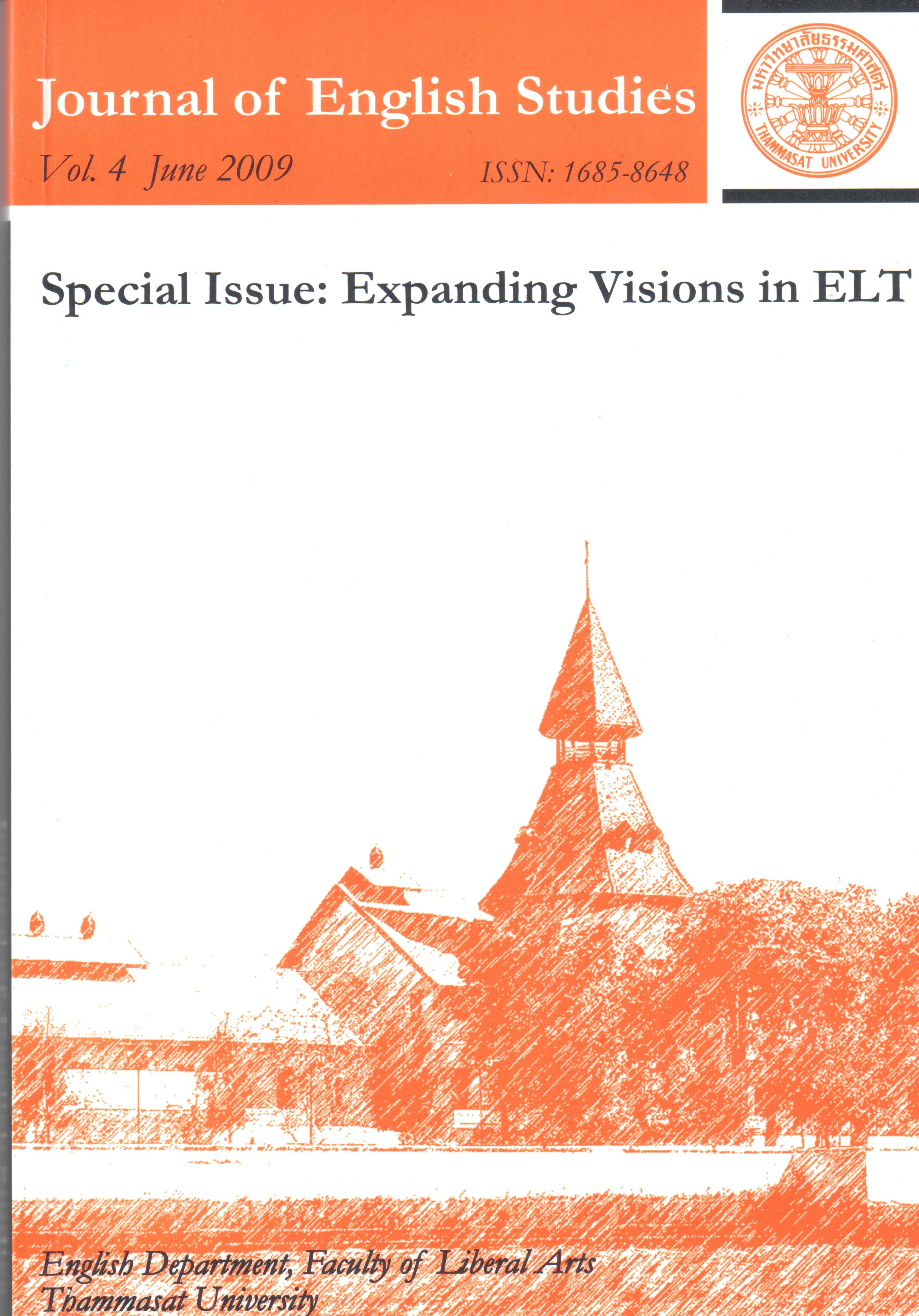“To Their Fullest Potential”: Job Satisfaction and Foreign University Teachers in Thailand
Main Article Content
Abstract
Foreign university teachers play an important role in the Thai education system. It would also be fair to say that the vast majority of foreign teachers inThailand, whatever their particular speciality, are necessarily involved in teaching English as a Foreign Language, whether as a primary or incidental focus. However, little is known about their job satisfaction levels, an important indicator of and factor in their effectiveness as teachers. This research uses a survey developed by Paul Hullah in a Japanese context to assess the job satisfaction levels of a sample of 31 foreign teachers at Thai universities through their perception of their actual labels and activities, on the one hand; and on the other, through what they would ideally like to be labeled as and to be doing. It is clear from the survey that foreign university teachers inThailandwant more engagement in their jobs and better lines of communication at all levels. To enable this, universities and educational policy makers need to redefine the place of foreign teachers within the Thai higher education sector.
Article Details

This work is licensed under a Creative Commons Attribution-NonCommercial-NoDerivatives 4.0 International License.
Authors who publish with this journal agree to the following terms: Authors retain copyright and grant the journal right of first publication with the work simultaneously licensed under a Creative Commons Attribution License that allows others to share the work with an acknowledgement of the work's authorship and initial publication in this journal. Authors are able to enter into separate, additional contractual arrangements for the non-exclusive distribution of the journal's published version of the work (e.g., post it to an institutional repository or publish it in a book), with an acknowledgement of its initial publication in this journal. Authors are permitted and encouraged to post their work online (e.g., in institutional repositories or on their website) prior to and during the submission process, as it can lead to productive exchanges, as well as earlier and greater citation of published work (See The Effect of Open Access).

